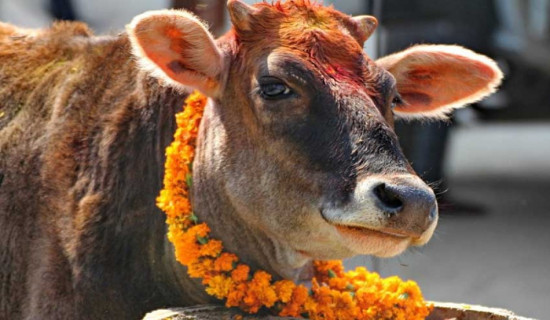- Wednesday, 22 October 2025
Dilemma Of Our Alignment In Life
As human beings, we are bound to follow a certain order in life. In the past, the order of nature was the only one that existed. However, now there is also a societal or modern order. This means that we have to follow the natural path directed by nature, and there is no escape from it. We cannot choose any other alternative, as we are born, we grow, and we eventually die. That is the path of nature.
On the other hand, the modern path made by us goes something like this: graduate, get a job, earn, save, and retire. However, the path made by us seems to have a loophole. This path can be escaped or chosen. One can choose a major, flip through jobs, spend the way they like, marry the one they love, and decide their structure of life. This sounds liberating because there is a choice for everything. Modern life is shaped by a bunch of our choices in academics or careers. But the feeling of escapism could be the reason for dissatisfaction among humans in modern society.
We use the word "we" to refer to billions of people, including the poor, the rich, the fool, and the know-it-all. Regardless of our different wavelengths in life, we all have something in common, and that is not being able to fully accept our modern path of life. We are fine with nature and its ways. We are okay with the logic of death and life, and we accept it and move on.
But the path made by us, the educational path or the career path, we are never satisfied with it. We make a choice and cannot accept it fully. We question our choices in academics, jobs, marriages, and even the dinner we had last night. There is no acceptance of who we are. Almost all humans fail in this manner. We regret and regret and regret. We crave a rewind button to go back and re-live our choices. But no matter what we do, a pang of guilt always seems to stay with us. So, did the feeling of choice and escape liberate us or further burden us?
Matt Haig, an English author and journalist, wrote a fiction titled "The Midnight Library." The novel is about a woman in her 30s who had so many regrets in life that she decided to submit her life and not live anymore. She found herself in a library that existed between life and death, where she was given the liberty to undo every regret she had.
She jumped on this opportunity and re-lived each checkpoint of life where she thought she could have done better. But nothing changed. With each life she lived, there was always something incomplete, unjust, or unfulfilled. Even when she corrected her regrets, another thing came up which left her even more hollow than before.
And she was again back to where she was. This novel perfectly illustrates our tendency of being neither here nor there. We want what we don't have or can't have. A man with a blue car wants a black one, a man with a bike wants a blue car, a man with a cycle wants a bike, a man who walks wants a cycle, and a differently-abled man wants his legs back so that he can walk. And this endless cycle of hopelessness goes on for eternity. Ever since the dawn of modern man, mere dissatisfaction has also seen the light of the morning.
Gratitude is a practice that we seldom engage in. We rarely take the time to appreciate what we have and find contentment in it. Even when the things we once prayed for are right in front of us, we have the audacity to look away and crave something else.
We forget that life is not about collecting things. When we exit this world, we leave everything behind with zero possessions. However, we have lost sight of this meaning, and logic is defeated by greed. This conflict arises from within, as we fail to make peace with our present and accept what we have.
We never smile and say, "This is enough," and wonder why we are so unhappy. We think that happiness lies in other choices, like a different job, major, or country. In this way, we never fully accept ourselves, leaving no room for self-love and self-acceptance, which can lead to various mental illnesses. We are harsh on ourselves for not making different decisions and curse ourselves, unable to forgive ourselves. Although we may forgive others, we struggle to forgive ourselves.
The saying, "Want what you already have," is like a mantra for a happy life, or at least a life where we are kinder to ourselves. When we want what we already have, we develop a great taste for our own life. We become more content and less frustrated, and life starts to make more sense. We then realize that life is not about having more but having enough.
Sometimes, even waking up in the morning is something to be thankful for, as many people who went to sleep at night never woke up.
In conclusion, it's essential to practice gratitude and find contentment in what we have. When we want what we already have, we can lead a happier and more fulfilling life. It's crucial to make peace with our present, accept ourselves, and forgive ourselves for the decisions we've made. By doing so, we can develop self-love and self-acceptance, leading to better mental health and a more positive outlook on life.
(Ghimire is a free lancer)

















